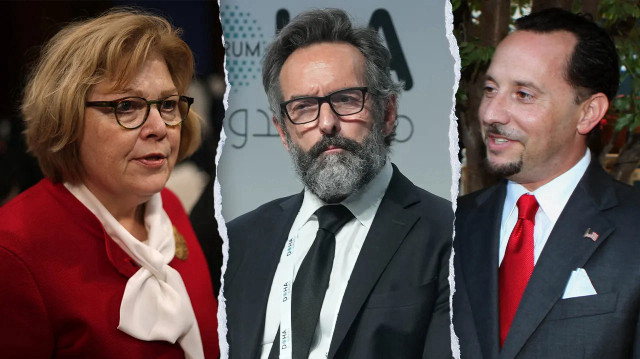Three senior US diplomats have arrived in Damascus, marking the first high-level American visit to Syria following the fall of Bashar al-Assad’s regime. The US State Department confirmed that Assistant Secretary of State Barbara Leaf, Special Hostage Envoy Roger Carstens, and Special Adviser on Syria Daniel Rubinstein are leading the mission. Their primary goals are to engage with Syrian leaders and civil society while pursuing efforts to locate missing American citizens, including journalist Austin Tice, who disappeared in Syria in 2012.
Focus on Missing Americans
During a Thursday briefing, State Department spokesperson Vedant Patel emphasized Washington’s commitment to finding Tice and other missing US citizens. “We have once again and will continue to stress upon everybody that we have an importance of doing everything we can to find missing US citizens, including Austin Tice, and bringing them home,” Patel stated. Freelance journalist and former US marine Austin Tice was kidnapped in Darayya, a Damascus suburb, in 2012. His case remains unresolved.
Engagement with Syrian Groups
Patel revealed that US officials are in contact with various Syrian groups, including Hayat Tahrir al-Sham (HTS), the opposition group that led the offensive resulting in Assad’s ouster. The diplomats plan to meet members of civil society, activists, and representatives from different communities to discuss Syria’s future.
The US government has underscored the importance of inclusive governance in post-Assad Syria, stressing the need to protect the rights of all Syrians, including ethnic and religious minorities. Patel noted that Secretary of State Antony Blinken reiterated these principles during recent engagements with Arab, Turkish, and American officials in Jordan.
Transition and Stability
Assistant Secretary Leaf and her team will also engage with HTS to discuss transition principles agreed upon during last weekend’s meeting in Aqaba, Jordan. Patel highlighted Washington’s position that Syria must not threaten regional stability, serve as a base for terrorism, or align with groups like ISIS.
“Our view is that when whatever government arises out of this transition, it needs to be inclusive, it needs to protect the rights of all Syrians, including women and minorities,” Patel said.
Assad’s Flight and Regime Collapse
Bashar al-Assad, Syria’s leader for nearly 25 years, fled to Russia on December 8 after opposition forces seized Damascus, ending the Baath Party’s six-decade rule. Washington reiterated the importance of preserving state institutions and ensuring the continued delivery of essential services.
Damascus remains a signatory to the Chemical Weapons Convention, and Patel stressed that Syria must uphold its international obligations. “Like all governments, it needs to preserve critical state institutions and deliver essential services,” he said.
The US’s direct engagement in Syria signals an intensified focus on shaping the country’s post-war trajectory, ensuring stability, and securing the return of missing Americans.
Related Stories:
First US Delegation Visits Post-Assad Syria
Erdogan Calls for Global Unity and Justice and Rebuilding Syria at D-8 Summit
The US has an interest in preventing the re-emergence of ISIL in Syria: US senator
















